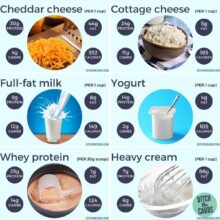Expert Testimony: FDA Forced Boosters On HEALTHY, YOUNG PEOPLE Without The Data To Back It Up
Briahna Joy Gray and Robby Soave react to latest testimony on the ongoing response to Covid-19. #Covid #vaccine
According to the CDC, all COVID-19 vaccines currently available in the United States are effective at preventing COVID-19. Getting sick with COVID-19 can offer some protection from future illness, sometimes called “natural immunity,” but the level of protection people get from having COVID-19 may vary depending on how mild or severe their illness was, the time since their infection, and their age. While COVID-19 vaccines are effective, studies have shown some declines in vaccine effectiveness against infections over time, especially when the Delta variant was circulating widely.
Everyone ages 18 and older should get a booster shot either 6 months after their initial Pfizer or Moderna series, or 2 months after their initial Johnson & Johnson’s Janssen vaccine. People ages 16–17 may get a booster dose of Pfizer at least 6 months after their initial series of vaccines.
The CDC says A person is fully vaccinated two weeks after receiving all recommended doses in the primary series of their COVID-19 vaccination. A person is up to date with their COVID-19 vaccination if they have received all recommended doses in the primary series and one booster when eligible.
Getting a second booster is not necessary to be considered up to date at this time. A study by The Cleveland Clinic found that both previous infection and vaccination provide substantial protection against COVID-19. Vaccination of previously infected individuals does not provide additional protection against COVID-19 for several months, but after that provides significant protection at least against symptomatic COVID-19.
Both messenger RNA (mRNA) and viral vector COVID-19 vaccines work by delivering instructions (genetic material) to our cells to start building protection against the virus that causes COVID-19.
After the body produces an immune response, it discards all the vaccine ingredients just as it would discard any information that cells no longer need. This process is a part of normal body functioning.
The genetic material delivered by mRNA vaccines never enters the nucleus of your cells, which is where your DNA is kept. Viral vector COVID-19 vaccines deliver genetic material to the cell nucleus to allow our cells to build protection against COVID-19. However, the vector virus does not have the machinery needed to integrate its genetic material into our DNA, so it cannot alter our DNA.
According to the CDC all COVID-19 vaccines currently available in the United States are effective at preventing COVID-19. Getting sick with COVID-19 can offer some protection from future illness, sometimes called “natural immunity,” but the level of protection people get from having COVID-19 may vary depending on how mild or severe their illness was, the time since their infection, and their age.
Getting a COVID-19 vaccination is also a safer way to build protection than getting sick with COVID-19. COVID-19 vaccination helps protect you by creating an antibody response without you having to experience sickness. Getting vaccinated yourself may also protect people around you, particularly people at increased risk for severe illness from COVID-19. Getting sick with COVID-19 can cause severe illness or death, and we can’t reliably predict who will have mild or severe illness. If you get sick, you can spread COVID-19 to others. You can also continue to have long-term health issues after COVID-19 infection.
While COVID-19 vaccines are effective, studies have shown some declines in vaccine effectiveness against infections over time, especially when the Delta variant was circulating widely.
In April 2021, increased cases of myocarditis and pericarditis were reported in the United States after mRNA COVID-19 vaccination (Pfizer-BioNTech and Moderna). Data from multiple studies show a rare risk for myocarditis and/or pericarditis following receipt of mRNA COVID-19 vaccines. These rare cases of myocarditis or pericarditis have occurred most frequently in adolescent and young adult males, ages 16 years and older, within 7 days after receiving the second dose of an mRNA COVID-19 vaccine (Pfizer-BioNTech and Moderna). There has not been a similar reporting pattern observed after receipt of the Janssen COVID-19 Vaccine (Johnson & Johnson).
CDC continues to recommend COVID-19 vaccination for everyone 6 months of age and older. The Advisory Committee on Immunization Practices (ACIP) and CDC have determined that the benefits (such as prevention of COVID-19 cases and its severe outcomes) outweigh the risks of myocarditis and pericarditis after receipt of mRNA COVID-19 vaccines.
For more info: https://www.cdc.gov/vaccines/covid-19/clinical-considerations/myocarditis.html






